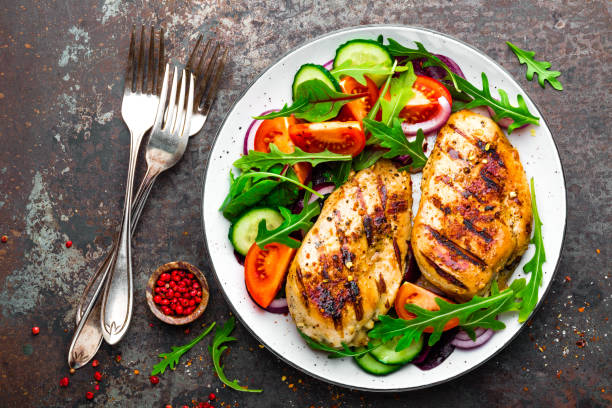how to lower blood pressure naturally
How to Lower Blood Pressure Naturally: Effective Lifestyle Strategies
High blood pressure, or hypertension, is a silent but serious health concern that affects millions of people worldwide. Left unchecked, it increases the risk of heart attacks, strokes, and kidney issues. While medication is often necessary in some cases, many people can lower blood pressure naturally through sustainable lifestyle changes and home remedies. This guide will walk you through proven methods that support heart health and can help you regain control over your numbers—naturally.
A heart-healthy diet is one of the most effective ways to manage high blood pressure.
- Boost Potassium-Rich Foods
Potassium helps relax blood vessels and counteracts the effects of sodium. Add foods like bananas, sweet potatoes, spinach, beans, and oranges to your meals.
- Cut Back on Salt
Reducing sodium is key to lowering blood pressure. Choose low-sodium versions of packaged goods, avoid processed snacks, and cook with herbs and spices instead of salt.
- Try the DASH Diet
The DASH (Dietary Approaches to Stop Hypertension) diet focuses on fruits, vegetables, whole grains, lean proteins, and low-fat dairy. It's one of the best diets for high blood pressure remedies.
2. Get Moving Regularly
Physical activity strengthens your heart, helping it pump blood with less effort.
Aim for 30 Minutes a Day
Moderate activities like walking, cycling, swimming, or even dancing for at least 30 minutes most days of the week can make a big difference.
Incorporate Strength Training
Lifting weights or doing resistance exercises two to three times weekly can also support heart health.
3. Manage Your Weight
📸 Suggested Image: People jogging in a park or a group fitness class. Being overweight puts additional strain on your heart. Even a small weight loss—5% to 10% of your body weight—can significantly lower blood pressure.
4. Limit Alcohol and Caffeine
Drink Alcohol in Moderation
Excessive drinking raises blood pressure. Men should limit themselves to two drinks per day; women, one.
Watch Your Caffeine Intake
While the long-term effects are debated, caffeine can cause a short-term spike in blood pressure in some people. Monitor how you respond to coffee or energy drinks.
 |
| healthworks.com |
Chronic stress contributes to high blood pressure. Prioritize emotional well-being through:
Meditation and Deep Breathing
Just a few minutes of mindfulness each day can help calm your nervous system.
Quality Sleep
Adults need 7–9 hours of restful sleep per night. Poor sleep habits can raise blood pressure over time.
6. Use Natural Remedies (With Caution)
Several natural supplements and herbs may support blood pressure management: Garlic: Known to promote better circulation and lower pressure. Turmeric (curcumin): May reduce inflammation in blood vessels. CoQ10 and Omega-3s: These supplements support heart function.
⚠️ Always talk to your doctor before starting any supplement—especially if you're on medication. 📸 Suggested Image: Natural supplements like garlic capsules, turmeric powder, and fish oil bottles. 7. Monitor Your Blood Pressure at Home
⚠️ Always talk to your doctor before starting any supplement—especially if you're on medication.Home monitoring allows you to keep track of your progress and notice any concerning trends early. Use a validated digital monitor and measure at the same time each day.
8. Quit Smoking
Smoking immediately raises blood pressure and causes long-term damage to your arteries. Quitting smoking has almost instant benefits for your cardiovascular system.
9. Stay Hydrated
Proper hydration helps your body regulate blood pressure. Aim to drink 8–10 cups of water daily. Dehydration can make the heart work harder, increasing blood pressure.
10. Cut Back on Sugar and Refined Carbs
Foods high in sugar and white flour spike insulin and contribute to weight gain—both of which raise blood pressure. Swap them for whole grains, fruits, and vegetables.
⚠️ Disclaimer
This article is intended for educational purposes only and does not replace medical advice. Always consult a healthcare provider before making any changes to your diet, exercise, or supplement routine—especially if you’re taking medication or have an existing health condition.
Frequently Asked Questions (FAQs)
1. How do you lower blood pressure quickly?
While you can’t fix hypertension overnight, deep breathing, drinking water, and walking for 15–30 minutes may offer short-term relief. Long-term control comes from consistent lifestyle habits.
2. What foods naturally lower blood pressure?
Leafy greens, beets, berries, bananas, oats, and low-fat yogurt are among the best natural foods to support lower blood pressure.
3. Can hydration affect blood pressure?
Yes. Staying well-hydrated can help maintain healthy blood pressure, especially during physical activity or hot weather.
4. Are natural supplements safe for blood pressure?
Some supplements like garlic, fish oil, and CoQ10 show promise, but they can interact with medications. Talk to your doctor before trying any.
5. How often should I check my blood pressure at home?
For best tracking, check once in the morning and once in the evening over a week and log the results for your doctor.
Foods high in sugar and white flour spike insulin and contribute to weight gain—both of which raise blood pressure. Swap them for whole grains, fruits, and vegetables.





Post a Comment